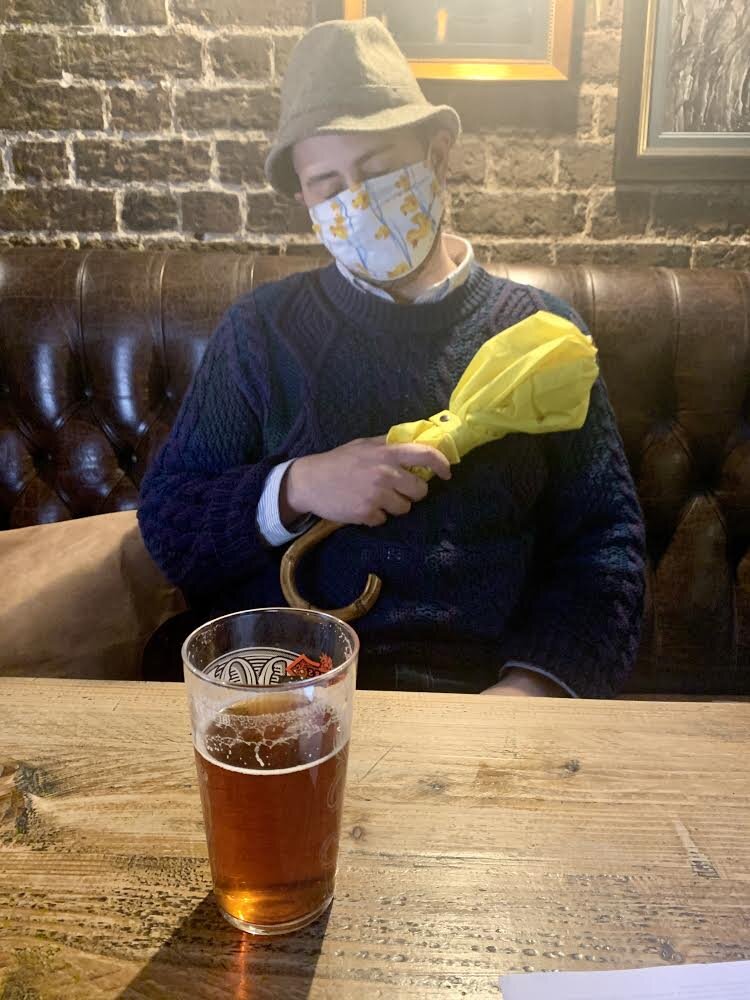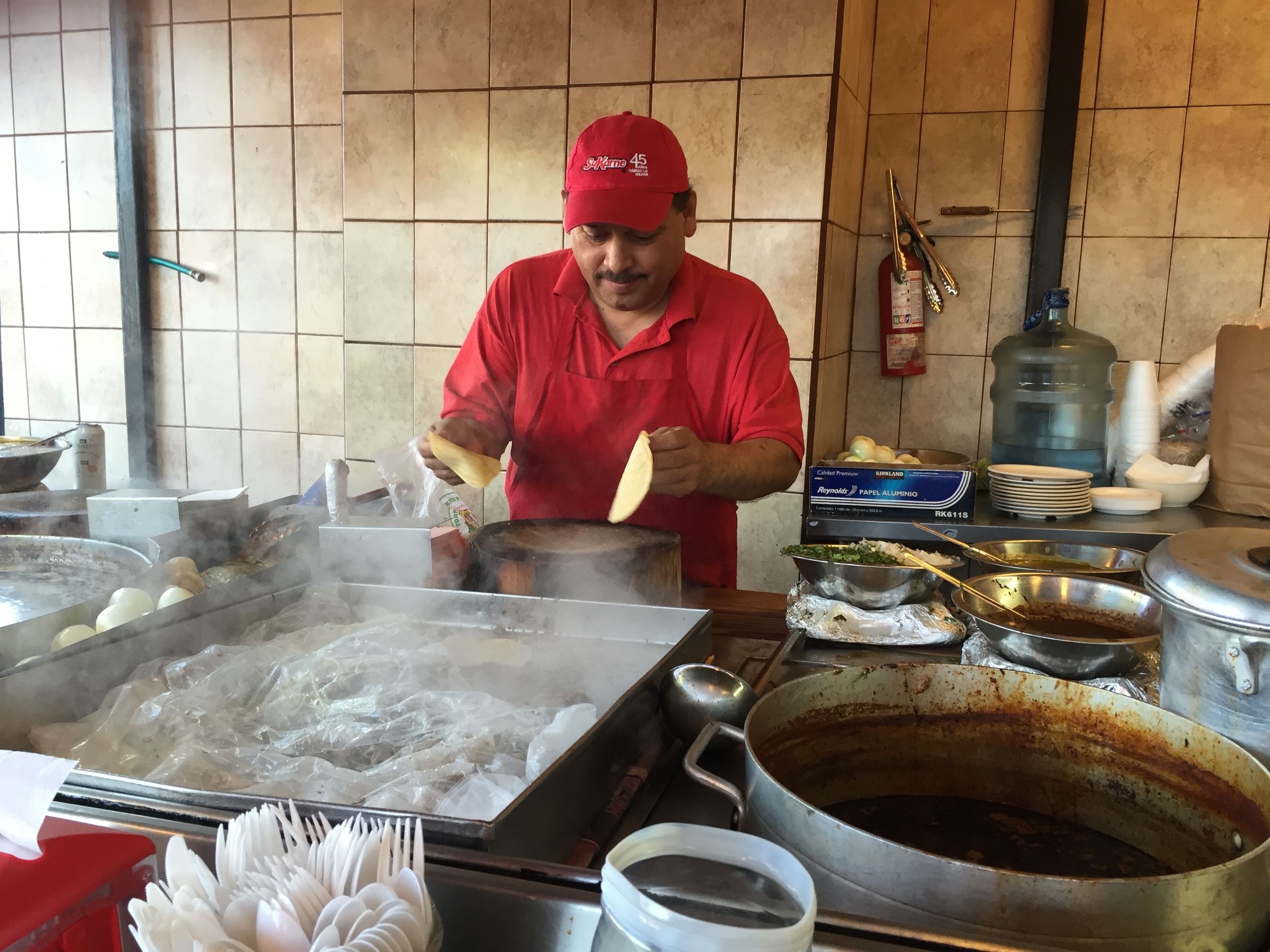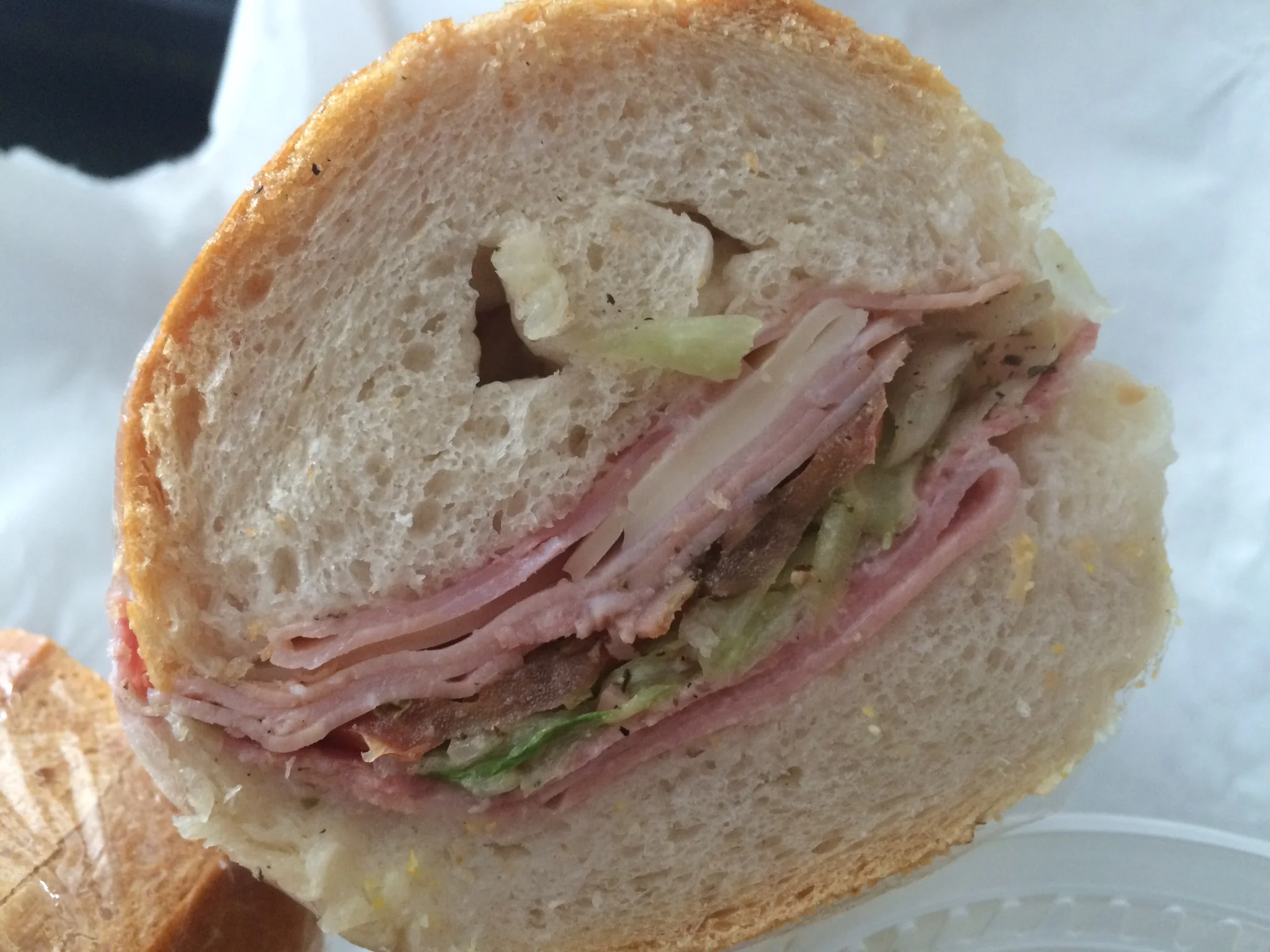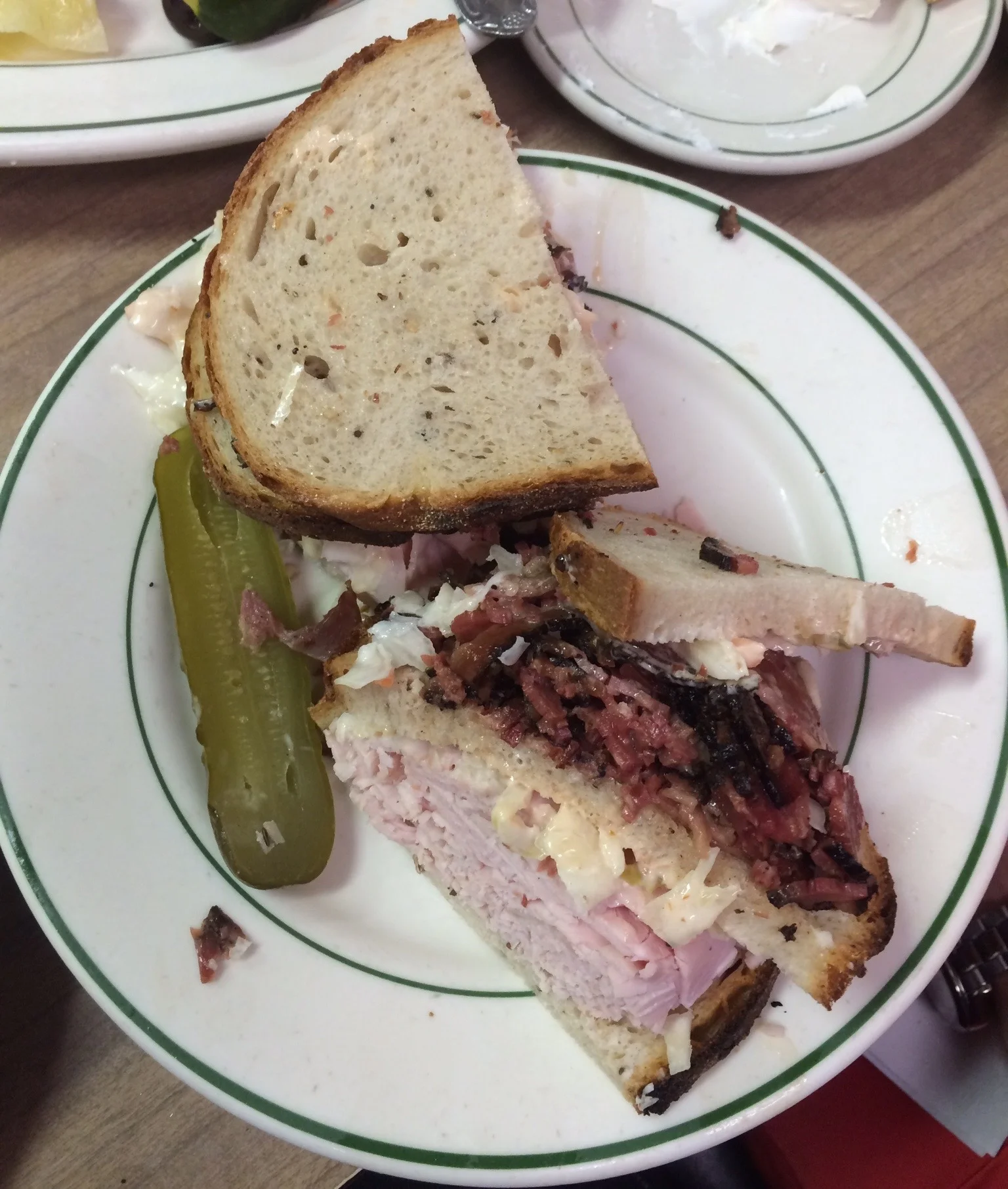Preaching Pleasure in a Plague
You’ll notice, if you compare the date of this post and the post previous, that I am having some trouble staying on task. David Rakoff said:
“Writing is like pulling teeth.
From my dick.”
And sitting here in London where the sun sets before four in the afternoon and the television screen is full of American body bags, he might not have put a fine enough point on it.
There is the widely felt pandemic brain fog and productivity-suck that everyone I know is suffering from. Then there is something specific to food writing. There is of course the fact that restaurants and bars are mostly closed, or shadows of their former selves, or irresponsibly dangerous to attend. It is relatively easy—or at least sincere—for me to write about the magic of a good restaurant meal, or a debauched night on the town. It is less easy and less admirable to write about the truth. Which, in this case means eating delivery from somewhere called “Bombay Burrito” for at least one meal a day, and last week spending a too large chunk of my dwindling savings on a box of six “fancy Christmas wines” to last me through the month and then drinking all of them that evening (Jill helped) washing down an aforementioned Bombay Burrito and, judging by the litter next to my bed, some delivery McDonalds chicken nuggets.
The bigger problem is that these are such serious times, and even at its loftiest and most serious food writing just isn’t up to the needs of the moment. Many many people are dead. Many more are cold and hungry and out of work. Many are cruel, and racist and murderous. The few who are flourishing are callous and corrupt. The very few who are genuinely hopeful, surely cannot read.
So, it seems tacky of me to choose this moment to tell you that Sauternes is about to have a moment — though I do think Sauternes is about to have a moment and a long time coming too. Mark my words.
Mind, I don’t mean food reporting. Now is absolutely the time to investigate the food industry, how we are failing food workers and how dearly we will miss them and the many restaurants which will surely be swept out in the wake of this thing. How restaurants have always been at the bleeding edge of what is tearing post-capitalist societies apart: the impossible economics, the dependence on and disdain for immigrants, the fact that my kids won’t know what a tuna is, and that mid-pandemic we’ve let that bleeding edge become a gaping wound.
These are timely vital stories. But that’s not the kind of food writer I am. Certainly not here on my blog, where no one is paying me to pretend I’m making the world a better place.
What I want to do is tell you how upsetting I find figs. Because figs can’t be trusted.
Most figs are such utter garbage — fruit whose texture and flavor I would describe as “like rotten fruit.” But figs upset me not because they are so bad but because the gulf between your everyday fig and a really good fig is so inexcusably vast. When a fig is good — maybe a few times in your life unless you come from a family of Turkish famers — it isn’t just good: it opens a portal into this whole other sensual world, a kind of sticky pleasure dome where you are not eating a fig, but you and the fig are swallowing each other.
They are so good in fact, that whenever we see figs on the menu it is all our duty to order them, even if what invariably arrives is the kind of food you would feed to a hostage as punishment.
That’s what I want to write about. But…
What I’m trying to get at I think is something we are all going through during this poisonous year-long coma: how to justify our existence.
Maybe your existence was based around that job you lost, or putting your kids through a college that has become a mismanaged disease vector. Or the friends you cannot see etc.
Well, my existence has always been wrapped up in my identity as something of a hedonist. Like the world’s most lapsed Jehovah’s Witness, I’m that guy knocking at your door or sitting next to you on the airplane and asking unbidden: “Have you let pleasure into your life?”
Not an easy role with such little pleasure to go around, and a very real question of whether we deserve any of it in the first place. Missionaries at least can offer you salvation. I could maybe buy you a drink (read: bully you into taking a jäger bomb) but that, despite what a certain strata of very sad men will tell you, is not the same thing.
It is Americans — and when I say Americans please know in this context I mean “white Americans” because a) that is the group that this applies to, and b) white Americans is the only group of Americans I would ever deign to speak for — who have always been most desperately in need of my pleasure-proselytizing — it would be wasted, for example, on the French who would benefit instead from some more moderating wisdom like “do not sleep with your students.”
Erotic, electric
This may surprise non-Americans who know my country for its more ostentatious shows of happiness: the parades, and television shows about buying things, the driving big trucks over smaller trucks and all the cheering. But just as how this pandemic has exposed to the world how difficult it is for America to mourn, I'd argue the same is true for our ability to enjoy pleasure. We do not apprieciate what Paul Simon described as “windows into our hearts.” We are afraid of joy.
Even as I write I’m not exactly sure what I’m trying to say, and it does feel a bit unfair to single out the Americans, especially as I’m typing from England a country whose ability to show emotion peaked in the era of the calling-card.
But I’m convinced I’m describing a real phenomenon and I’m not the only one who’s noticed.
Like apparently every other white person with an Instagram account, I have been reading a lot of James Baldwin this year. Baldwin is a very serious person (which is not to say humorless, or grim, or infallible) but he is also an unabashed celebrator of pleasure.
While I knew about his love of clothes and sex and good company and travel, I’m surprised how little I considered his love of food — though anyone leaving America for France, even during the grim racial climate of the 1960’s, must have cuisine somewhere on their mind.
It was only really last week when I read Valerie Stivers most recent “Eat Your Words” column in the Paris Review, “Cooking with James Baldwin” that I conceived of Baldwin as feaster.
Reading her column, I learned that one Baldwin’s preferred condiments was Roquefort cheese mashed together with French butter—another on a long list of reasons why we really didn’t deserve him.
And it is also where I found some sort of answer to these questions about pleasure and seriousness and identity and America that I had been grappling with.
Stivers quoted this passage from The Fire Next Time:
“To be sensual, I think, is to respect and rejoice in the force of life, of life itself, and to be present in all that one does, from the effort of loving to the breaking of bread. It will be a great day for America, incidentally, when we begin to eat bread again, instead of the blasphemous and tasteless foam rubber that we have substituted for it. And I am not being frivolous now, either. Something very sinister happens to the people of a country when they begin to distrust their own reactions as deeply as they do here, and becomes as joyless as they have become.”
Baldwin has written about America’s disconnect with its sensual self (its humanity) before, but it is this phrase, that Americans “begin to distrust their own reactions” that resonates most perfectly with my experiences.
This explains our hypocrisy around sex for one, and drinking too. That we drink to get drunk, succeed in getting drunk, but feel we haven’t finished the endeavor until after the important final step: apologizing.
We are not prudes (the puritans themselves were shiny leather and metal buckled freaks, look it up). And it is certainly not that we don’t think we deserve happiness — Americans’ birthright is that we think we deserve everything.
And it is not shame I think, but something closer to embarrassment.
It is just what Baldwin said, that we distrust our own reactions to joy. To sigh too heavily, to laugh too loudly, to cry with happiness (or sadness) is too gay or too black or too female — to whoever it is we are so disdainful of. Whether we disdain them for their unbroken link to their humanity is another question and too lofty for this blog — though the answer is yes.
We don’t feast: moaning with our mouths full, letting our eyes roll back and rubbing our bellies/ nipples. We “eat dinner” and if the dinner is very good we maybe, compliment the grill (the machine and not the human being) and ask where the chef buys their groceries.
Unless you want to hear an American laugh, do not even bother mentioning that most un-American concept since Christian charity: “making love.”
Pleasure is soft. And softness, even more than running out of bullets, is what America is most afraid of. That is what we are afraid of in death as well, and why we cannot admit that our country has entered a season of death. It is the tenderness of saying goodbye — because I assure you we have no problem with the killing itself.
But America, we got it wrong. It was never about the fucking, it is about the ecstasy. We love freedom but we never hold it anymore, and we really do think that shooting a gun in the air counts as gratitude. We love loudly, and loving loudly is not quite right.
We put in all the work, spend all the money, and then refuse to allow ourselves to be moved.
I saw on television once a butcher from Tuscany. He sang to his steak before he put it in the oven, and when he took the first bite he burst into tears.
Americans love their steaks, as much or more than any Tuscan. And we have the best steaks in the world (a fact). But go to an American steakhouse — you’ll be happy you did — and every eye will be dry.
I’m sure a rancher in Kobe isn’t embarrassed if his wife catches him whispering sweet lullabies into his favorite cow’s ear at bedtime.
Our steaks deserve our weeping. At this point, I’m sure they long for it. As do we, us the stiff-lipped freedom-loving steak-eaters.
This is of course, extremely serious. If we cannot have authentic, non-circumspect reactions to our most intense emotions then we only allow ourselves a shadow of a life. Putting a toe in the water doesn’t feel swimming.
Pleasure then, and preaching its virtues is vital. It’s not about the pleasure-seeking, or the act of pleasure, it is about allowing ourselves to feel deeply and openly.
And that, now that it so cold, and so many people are not going to make it through this, and so many more are alone, is more important than ever.
To repurpose the words of another artist expatriate, someone whose eloquence and unimpeachable ethical compass is so like Baldwin’s, Mel Gibson (as William Wallace) : the tragedy is not in the dying, but it is in the not allowing yourself to truly live.
This distrust of our own hearts is deep-seeded for every America, and like so much else that is deficient or malignant in our culture it will take time and real hard work to unlearn. It is something I struggle with as well.
For a long time, I thought that embracing pleasure and rebelling against my American dispassions was as easy as spraying champagne on everybody I met. Now I see, what really takes heart, is turning the bottle on myself.
Oh, and since this blog is supposed to be about me moving to England: I’m not sure what this all means for my adopted home — and America's technical emotional forbear.
I can’t say I’ve seen too many Brits getting misty eyed over their meat pies. Though I do have a good English friend who will spontaneously recite poetry after a exceptional meal. And the bread I’ve had here is marvelous.















































































